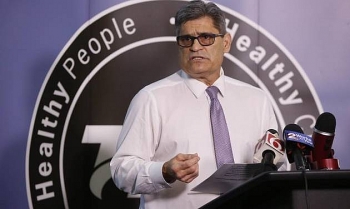World news today: WHO welcomes preliminary results of dexamethasone use in COVID-19 treatment
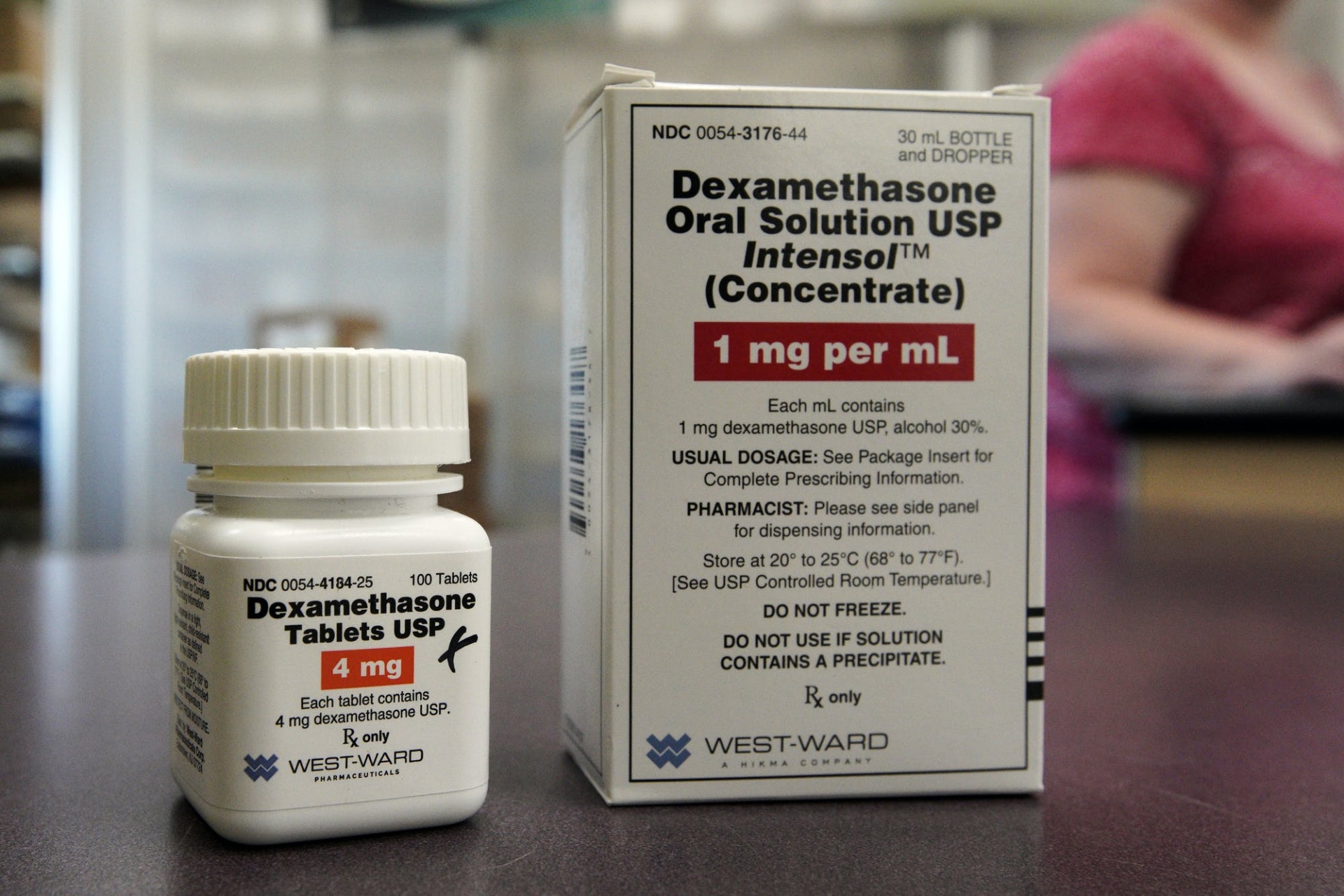 | |
|
WHO welcomes preliminary results of dexamethasone use in COVID-19 treatment
The positive initial clinical results from the UK that show dexamethasone, a corticosteroid, can be a lifesaver for COVID-19 critically-ill patient.
According to preliminary findings shared with WHO, dexamethasone is shown to reduce roughly 30 percent and 20 percent of mortality rate for those patients on ventilators, and those requriting only oxygen, respectively.
The benefit, however, was only seen in patients seriously ill with COVID-19, and was not observed in patients with milder disease.
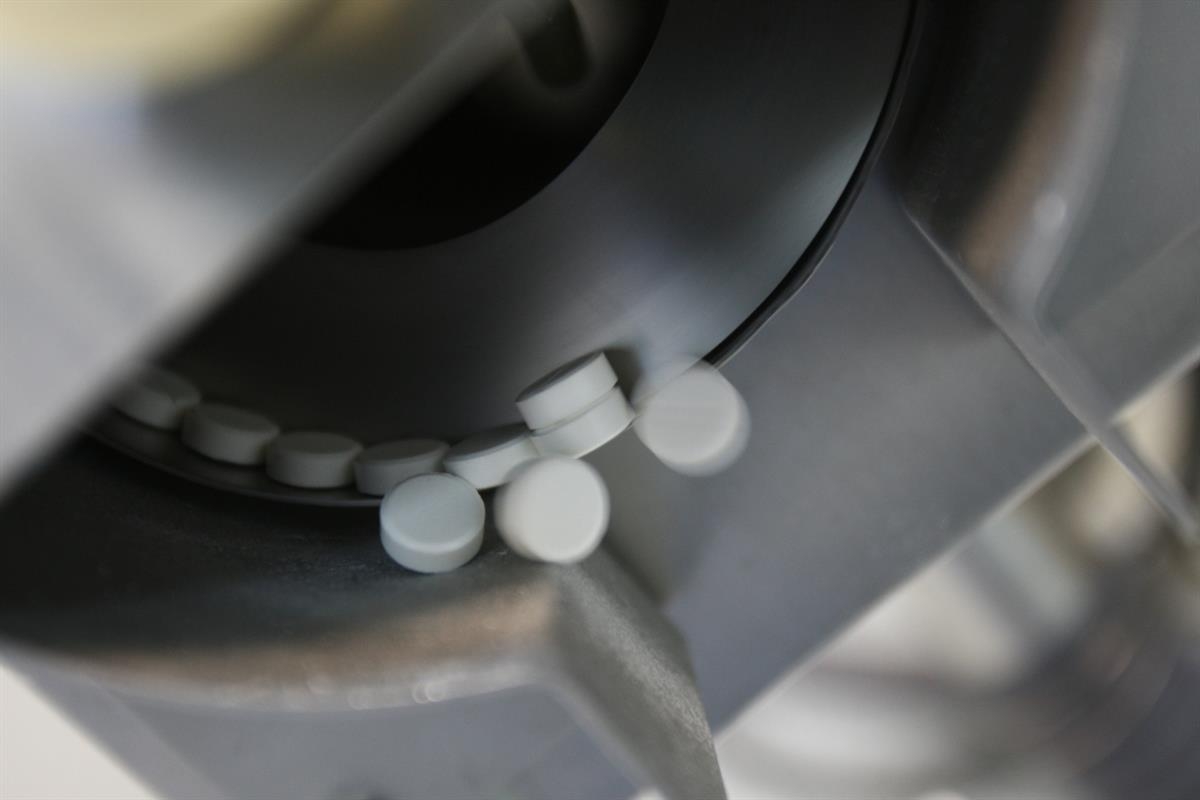 |
| Dexamethasone (Photo: WHO) |
“This is the first treatment to be shown to reduce mortality in patients with COVID-19 requiring oxygen or ventilator support,” said Dr Tedros Adhanom Ghebreyesus, WHO Director-General. “This is great news and I congratulate the Government of the UK, the University of Oxford, and the many hospitals and patients in the UK who have contributed to this lifesaving scientific breakthrough.”
Dexamethasone is a steroid that has been used since the 1960s to reduce inflammation in a range of conditions, including inflammatory disorders and certain cancers. It has been listed on the WHO Model List of Essential Medicines since 1977 in multiple formulations, and is currently off-patent and affordably available in most countries.
North Korea bombs Inter-Korean liaison office as tensions rise
North Korea blew up the Inter-Korean liaison office Tuesday, a move considered a careful display of anger that sharply raises tensions on the Korean Peninsula and puts pressure on Seoul and Washington amid deadlocked nuclear diplomacy.
The office is reported Tuesday by the North Korean state news agency, KCNA to have been “completely ruined”.
Suh Ho, South Korea's vice unification minister, who co-headed the liaison office, told NCBC news the bombing was "unprecedented in inter-Korean relations," calling it "a nonsensical act that should have not happened."
"We express deep regret and strongly protest against it," Suh said.
South Korea’s Ministry of Defense is monitoring North Korea military movement around the clock after the bombing and maintaining a "resolute military posture”, NCBS news reported.
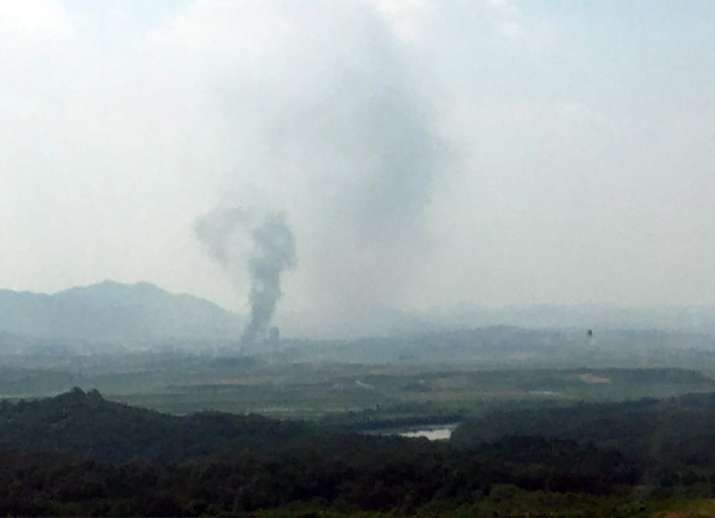 |
| The Inter-Korean liaison office blown up Tuesday night (Photo: Jeden News) |
The bombing of the Inter-Korean liaison office – which was built in 2018 – coincides with the 20th anniversary of the first inter-Korea summit.
North Korea also threatened to permanently shut down the office earlier this month as it condemned the South for failing to prevent activists from sending anti-North Korean leaflets across the border. Last week, it axed all communications with South Korea.
South Korea convened an emergency security meeting Sunday Kim Yo Jong, r North Korean leader Kim Jong Un's sister, threatened military action against South Korea and to demolish the "useless" inter-Korean liaison office at the time.
Beijing raises emergency response to level II
The capital declares to raise its emergency response from Level III to Level II, Chen Bei, Beijing municipal government's deputy secretary-general, announced the decision at a press conference late Tuesday night.
Under level II, Beijing reinstated closed managements on communities, all people must have body temperature and health codes checked before entering closed communities, as well as register with entrance guards.
Communities, sub-districts, streets in high/medium-risk areas would ban outsiders and cars from entering; and communities of high-risk sub-districts would have closed-off management, allowing no one to leave, as reported by Global Times.
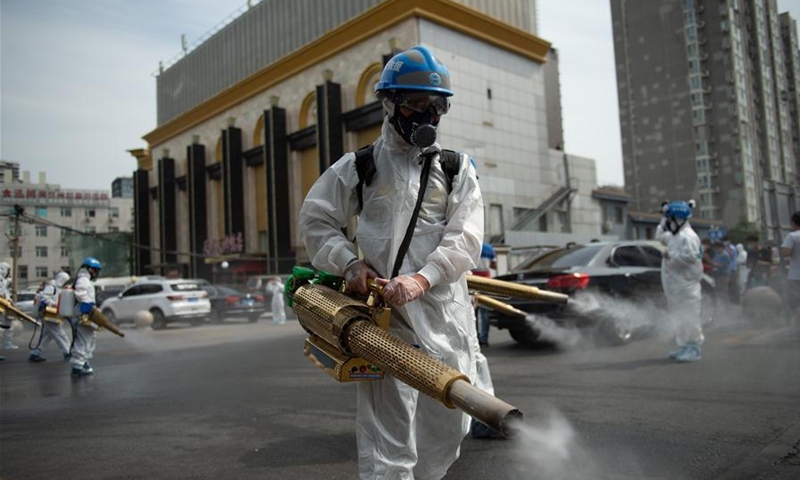 |
| Beijing raises its emergency response from Level III to Level II (Photo: Global Times) |
The capital had locked down 29 residential communities, put four large districts into "wartime mode," disinfected 276 food markets, shut down 11 underground and semi-underground markets, screened over 200,000 people within 72 hours before the announcement.
Beijing reported 106 confirmed cases related to Xinfadi wholesale market - the largest of its kind in Asia – after nearly two months of staying clear of community transmission of the virus. Raising the emergency response level is one of the capital’s prevention measures beefed up to mitigate the spread of the virus.
Oil Markets May Not Fully Recover Until 2022
The surplus of crude oil sloshing around the world has narrowed quicker than expected, owing to a severe drop in supply and a quick rebound in demand in some parts of the world after a record drop in consumption, Oil price reported.
Global supply fell by 12 million barrels per day (mb/d) in May, year-on-year, due to the roughly 9.4 mb/d of cuts from OPEC+ along with sharp curtailments from non-OPEC countries.
China’s “strong exit from lockdown measures” saw Chinese demand in April almost back to normal levels, the agency said. The further easing of lockdown protocols around the world will likely lead to rebound in demand in the second half of 2020, although Beijing said on Tuesday that all schools will temporarily shut down in the capital due to new coronavirus cases, highlighting the persistent danger of the pandemic. It’s unclear what this means for the Chinese economy going forward.
Oil demand is expected to fall by 8.1 mb/d in 2020 on an annual average basis, the largest decline ever recorded, according to the IEA.
In 2021, demand rises by 5.7 mb/d, a huge increase, but still falling short of pre-pandemic levels. At 97.4 mb/d, the forecasted consumption for 2021 will be 2.4 mb/d below 2019 levels, although the IEA warned about significant uncertainty to all of these projections. The IEA’s forecast only goes through 2021, which means that it may take until 2022 at least for demand to fully recover, if it ever does.
Road traffic has seen somewhat of a V-shaped recovery, not just because of the easing of lockdowns but also because more people are resorting to cars instead of mass transit. Meanwhile, much of the lingering demand destruction is concentrated in the aviation sector, which is facing an “existential crisis,” the IEA said. Passenger traffic this year could be down 55 percent compared to 2019, according to data from the International Air Transport Association.
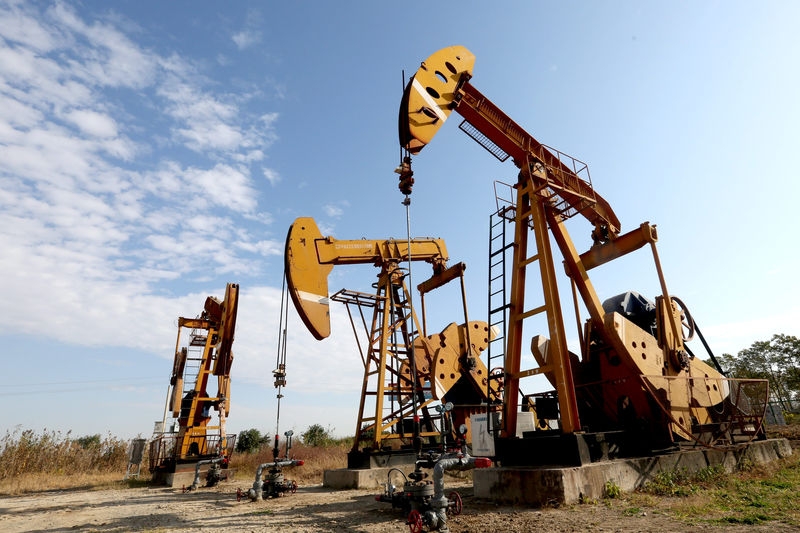 |
| Oil Markets May Not Fully Recover Until 2022 (Photo: Investing.com) |
On the supply side of the equation, substantial scars also persist. Global production is expected to fall by 7.2 mb/d this year, and only rise by 1.8 mb/d in 2021. $40 oil is not high enough to support a rebound in U.S. shale, the IEA said.
Indeed, the rig count continues to fall, dipping below 200 last week, a record low. U.S. shale production is expected to decline by another 93,000 bpd in July, according to a new assessment from the U.S. EIA. The Permian basin is only expected to lose about 7,000 bpd, perhaps with losses made up by the restart of shuttered wells. Other shale basins fare worse – the EIA sees production losses next month of 28,000 bpd in the Eagle Ford; 25,000 bpd in the Niobrara; and 26,000 bpd in the Anadarko.
Analysts differ on what happens next. The IEA’s message is more upbeat, but others warn about lingering risks. Much of the market thinks that the coronavirus pandemic is “just a short-term blip, and that oil demand will soon return to its previous path,” Standard Chartered analysts wrote in a note on June 11. “We think that much of the market is ignoring the downside risks to demand arising from both economic weakness and permanent changes in patterns of energy use.”
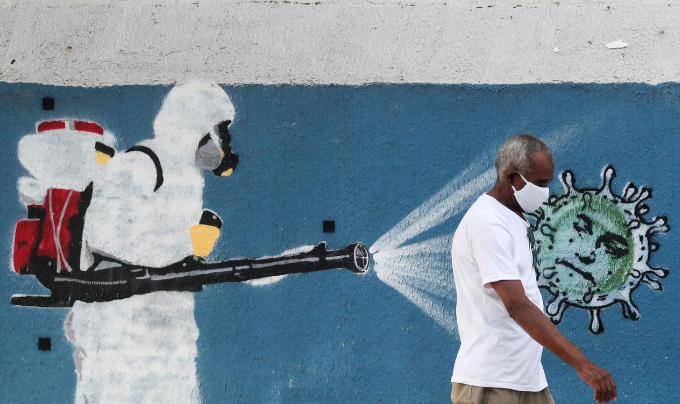 | World news today: Brazil becomes the COVID-19 second deadliest country worldwide World news today June 13: Brazil has overtaken the UK to become the world's highest COVID-19 death toll. Meanwhile, Ukraine President cancels meetings, trips as his ... |
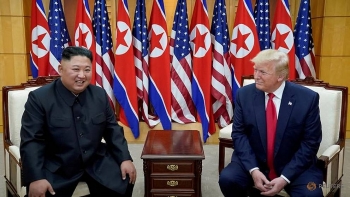 | World news today: North Korea says there’s little reason to maintain the Trump-Kim relationship World news today June 12: North Korea sees little use maintaining the Trump-Kim ties if Washington sticks to hostile policies. Biden "convinced" military will escort Trump from White House, G20’s ... |
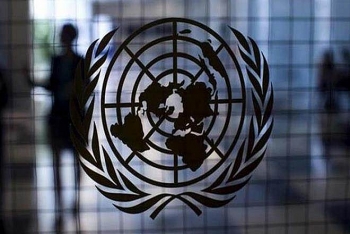 | World news today: UN General Assembly will be held online for the first time World news today June 11: First ever virtual US General Assembly, Russia's invitation of U.S. defense secretary to Red Square military parade, China reaches 'positive consensus' with ... |
Recommended
 World
World
Pakistan NCRC report explores emerging child rights issues
 World
World
"India has right to defend herself against terror," says German Foreign Minister, endorses Op Sindoor
 World
World
‘We stand with India’: Japan, UAE back New Delhi over its global outreach against terror
 World
World
'Action Was Entirely Justifiable': Former US NSA John Bolton Backs India's Right After Pahalgam Attack
Popular article
 World
World
US, China Conclude Trade Talks with Positive Outcome
 World
World
Nifty, Sensex jumped more than 2% in opening as India-Pakistan tensions ease
 World
World
Easing of US-China Tariffs: Markets React Positively, Experts Remain Cautious
 World
World

